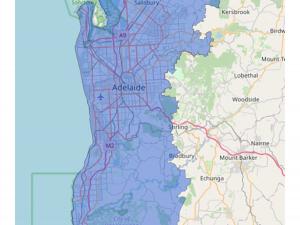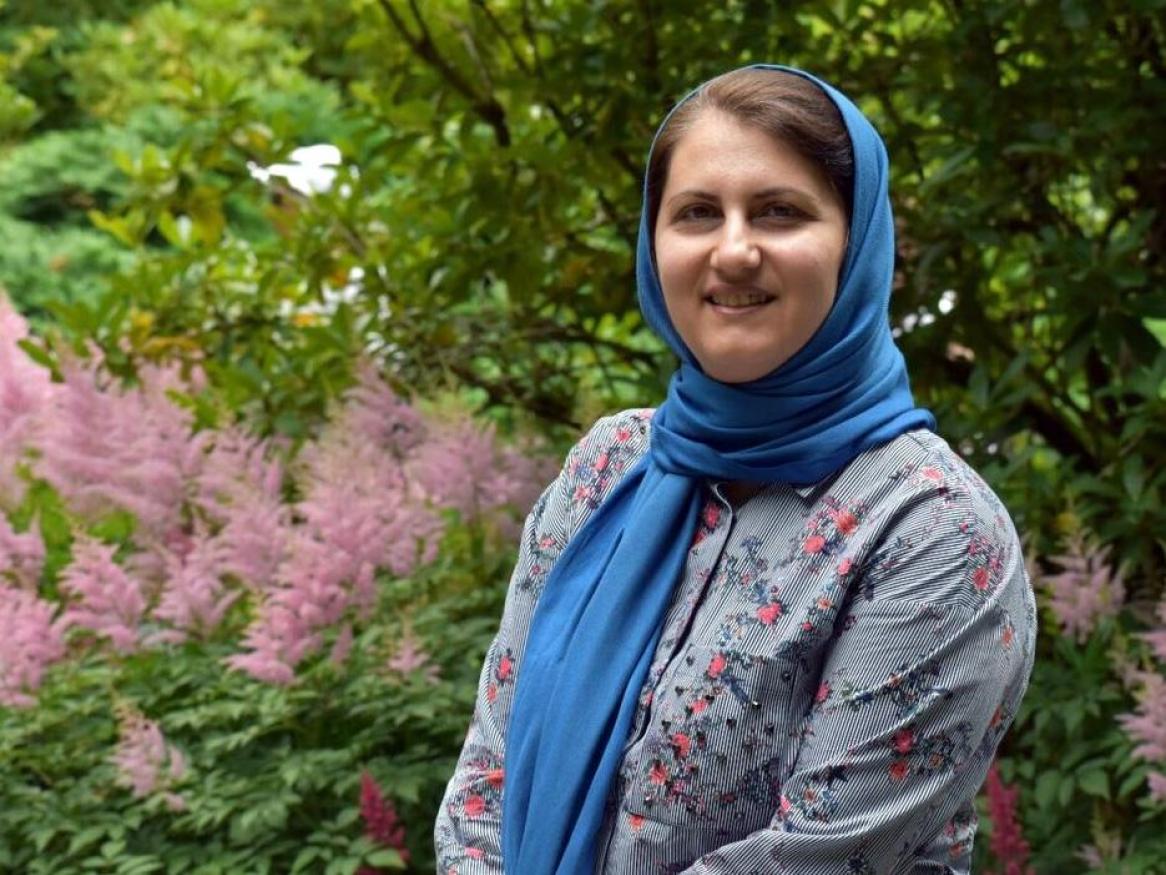Safe Soil, Safe Food
Understanding PFAS and soil health in Adelaide's urban residential soil

What is this project about?
This project is dedicated to understanding the distribution of PFAS chemicals and soil health in urban residential soils across metropolitan Adelaide. By joining our initiative, you play a pivotal role in gathering valuable data that will help us ensure safer and healthier living environments.
Given the high levels of community interest in the project, it is expanding to include up to 50 additional participants, thanks to University of Adelaide funding.
Project timeline
| 10/04/2024 | The Safe Soil - Safe Food project goes live |
| 24/04/2024 | Expression of Interest closes |
| 06/05/2024 | Survey participants selected |
| 22/05/2024 | All soil sampling kits distributed by post |
| 12/08/2024 | Soil sample collection closed |
| 12/08/2024 | Start PFAS analysis |
| 20/05/2025 | All soil samples analysed |
Find out more
-
Who's invited to participate?
We're inviting residents spanning from Gawler to Sellick's Beach (North to South) and between West Beach and Tea Tree Gully (West to East). Anyone aged 18 years or older who is proficient in English can apply to participate.
As we anticipate a high level of interest, not all applicants might be chosen for participation. However, selected participants will receive all necessary materials by mail, including Zip-lock bags for soil sampling, a simple questionnaire, and a return envelope.
We kindly request a soil sample from your most frequently used garden bed, specifically from the topsoil layer (0-10 cm depth).
-
The 18 metropolitan Adelaide councils included in this study are:
- City of Adelaide
- City of Burnside
- Campbelltown City Council
- City of Charles Sturt
- City of Holdfast Bay
- Town of Gawler
- City of Marion
- City of Mitcham
- City of Norwood Payneham and St Peters
- City of Onkaparinga
- City of Playford
- City of Port Adelaide Enfield
- City of Prospect
- City of Sailsbury
- City of Tea Tree Gully
- City of Unley
- Town of Walkerville
- City of West Torrens
-
What is PFAS?
PFAS, an acronym for per- and polyfluoroalkyl substances, represents a group of man-made chemicals that have been in use since the 1940s. These chemicals have seen widespread application due to their unique chemical properties, such as resistance to water, oil, and heat. This has made them indispensable in various industrial applications and consumer goods, leading to their presence in everything from non-stick pans and water-resistant clothing to certain types of food packaging and firefighting foams.
One of the significant concerns surrounding PFAS compounds is their longevity in the environment, especially in soils. These compounds are known for their persistence, meaning they do not break down easily. This has raised environmental and health concerns, given that these substances can remain in soils for extended periods and potentially find their way into the food chain.
Recent research has highlighted that one of the primary ways PFAS enters the environment, especially soils, is through soil amendments. Soil amendments, which are materials added to soil to improve its properties, can sometimes be sources of PFAS, especially if they have been in contact with or are derived from contaminated sources. Research on PFAS concentration in urban residential soils is limited. This project sets a benchmark by mapping its distribution and the overall soil health. The findings will be instrumental for guiding future research, advising environmental agencies, and informing policy decisions.
Get involved
-
Participation
Joining our study means helping to create a clearer picture of PFAS presence in Adelaide's residential soils. Before expressing your interest, please ensure you meet the following criteria:
- You reside in one of the metropolitan Adelaide councils listed above.
- You are at least 18 years of age.
- You are proficient in English.
- The soil sample you wish to provide comes from gardening soil, which you are currently using or have previously used for cultivating fruits, vegetables, herbs, or ornamental plants.
- If you are selected for the study and receive a soil sampling bag, you are able to return your soil sample within the next 4 weeks, using the provided return envelope.
Participant information
Please ensure you read and understand the details in our participant information sheet.
Express your interest
If you meet these criteria and are interested in participating, please express your interest by filling out our survey form. Expressions of interest close on Wednesday 24 April.
-
Privacy
We value your privacy just as much, as we value our own privacy! Here's how we handle the information you provide:
- We collect address details solely for the purpose of sending out the soil sampling kits.
- Once the kits are dispatched, all address details are permanently deleted from our records.
- Within your soil sampling kit, you will find a questionnaire which, amongst other questions, asks for your suburb and email address.
- Providing your email address is optional. But you need to provide it, if you want us to return your individual soil test results.
- Once we receive your soil sample, it will be labelled with a random bar code for internal tracking purposes. This bar code is only linked to your suburb and, if provided, your email address. This means that soil samples cannot be linked back to your residential address.
- Even in the theoretical event that PFAS concentrations in soil exceed the health investigation thresholds, no results will be reported to external organisations. All participants who have provided their email address will receive their results, along with a comparison to the health investigation levels (as defined by National Environment Protection Measures) as a reference point.
- For additional guidance and resources, participants will be directed to the Australian Government's PFAS Taskforce website. Any decision on further action is the sole responsibility of the participant.
Rest assured, all results published or shared from this study will be entirely anonymized, with no individual data traceable back to participants.
Meet the team
Dr Matthias Salomon
University of Adelaide
Dr Shervin Kabiri
The University of Adelaide
Hannah Thwaites
The University of Adelaide
Professor Melissa Nursey-Bray
The University of Adelaide
Professor Timothy Cavagnaro
Flinders University
Dr Jungho Suh
University of Adelaide
Frequently Asked Questions (FAQs)
-
Why is PFAS in soils a concern?
PFAS compounds are persistent and don't break down easily in the environment. When present in soils, they can find their way into the food chain, potentially affecting human health.
-
How was the area of study chosen for this project?
The study is focusing on the region between Gawler to Sellick's Beach and West Beach to Tea Tree Gully based on urban density in the Greater Adelaide Region.
-
Are there any costs associated with participating?
No, participation in this study is completely free. If selected, you will be provided with a soil sampling bag and a return envelope, both at no cost to you.
-
How will the soil samples be used?
The collected soil samples will be analysed for PFAS content and other soil health parameters in a University of Adelaide laboratory and potentially external commercial laboratories. Soil samples will be stored at the University of Adelaide and may be used for further analysis.
-
How will my privacy be protected?
Your privacy is of the utmost importance to us. After sending out the soil sampling kits, all personal address details will be permanently deleted. Soil samples will only be linked to your suburb and email address if you provided one within the questionnaire. If you have provided an email address, it will be used solely for sending your test results to you and will not be linked to any published data or shared externally.
All published results will remain anonymous.
-
When and how will the results be shared?
-
What will happen if my soil sample has high concentrations of PFAS?
Even in the theoretical event that PFAS concentrations in soil exceed the health investigation thresholds, no results will be reported to external organisations. All participants who have provided their email address will receive their results, along with a comparison to the health investigation levels (as defined by National Environment Protection Measures) as a reference point.
For additional guidance and resources, participants will be directed to the Australian Government's PFAS Taskforce website. Any decision on further action is the sole responsibility of the participant.”
-
What can I do if my garden bed has high concentrations of PFAS?
If you are concerned about elevated PFAS levels in your garden soil, the most effective solution is to replace the affected soil. Due to the persistent nature of PFAS, it remains in the soil for a long time and is difficult to break down through natural processes. Exchanging the soil can help in ensuring that the new soil is free from or has lower concentrations of PFAS, making it safer for gardening activities.
Please refer to the PFAS Taskforce within the Australian Government for further resources and support.
-
Is the soil sampling process difficult?
Not at all! We have made the soil sampling process as straightforward as possible. Along with the soil sampling kit, we will provide clear instructions. Here's a basic overview:
- Prepare a clean bucket.
- Using a small gardening shovel, collect soil samples from the top layer (0-10 cm) of your most commonly used garden bed. Do this three times.
- Mix the collected soil thoroughly in the bucket.
- Fill the provided zip-lock bag with the mixed soil.
- Send it back to us using the prepaid envelope included in the soil sampling kit.
No prior experience or expertise is required; just follow the instructions and you'll be good to go!
What if I have more questions?
If you have any additional questions or need further information, feel free to reach out to Dr Matthias (Matt) Salomon at matthias.salomon@adelaide.edu.au.







